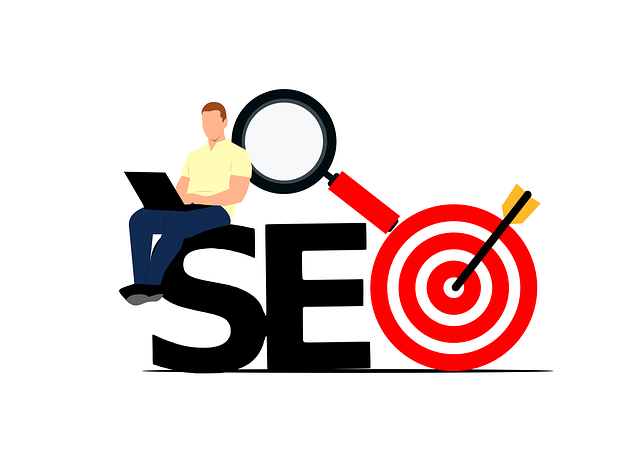A comprehensive SEO Audit is crucial for e-commerce success in today's digital landscape. It involves analyzing every aspect of a website, focusing on on-page (keyword optimization, meta tags, content quality), off-page (backlinks, social signals, local citations), technical (speed, mobile responsiveness, HTTPS), and strategic (keyword research, industry trends) elements. By leveraging tools like Google Search Console, SEMrush, Ahrefs, and Screaming Frog, businesses can optimize their sites for better rankings, increased organic traffic, enhanced user experience, and ultimately, higher sales.
In today’s digital landscape, a robust SEO strategy is pivotal for e-commerce success. This comprehensive guide delves into the essentials of an e-commerce SEO audit, equipping businesses with the tools to enhance online visibility and drive sales. We explore key components, from understanding search engine optimization (SEO) fundamentals for e-commerce to implementing effective auditing tools. By analyzing on-page elements, off-page backlinks, and technical considerations, you’ll unlock strategies for keyword research and optimization, ensuring your e-commerce site thrives in a competitive market.
Understanding the Importance of SEO for E-commerce

In today’s digital era, Search Engine Optimization (SEO) plays a pivotal role for e-commerce businesses aiming to thrive in a competitive market. An SEO audit is an essential step to understand and optimize your online visibility on search engines like Google. It involves a comprehensive analysis of various factors that impact how your website ranks when potential customers search for products or services related to your niche. By identifying areas of improvement, you can enhance organic traffic, increase conversions, and ultimately drive more sales.
An effective SEO audit for e-commerce considers key elements such as keyword research, on-page optimization, site structure, mobile responsiveness, page load speed, internal linking, and external backlinks. Each of these factors contributes to the overall health of your website’s search engine rankings. For instance, optimizing product titles, descriptions, and URLs with relevant keywords can significantly improve click-through rates and lower bounce rates, indicating higher quality scores to search algorithms. Similarly, ensuring a seamless user experience across all devices is crucial for retaining visitors and encouraging them to explore and purchase more.
Key Components of an E-commerce SEO Audit

A comprehensive SEO Audit for e-commerce sites goes beyond surface-level analysis. It’s a meticulous process that scrutinizes every facet of your online store to maximize visibility and drive sales. Key components include a detailed analysis of on-page SEO, where factors like keyword optimization, meta tags, title elements, and content quality are evaluated to ensure they align with best practices and target audience search queries.
Off-page SEO is another critical area, focusing on backlinks, social signals, and local citations. A thorough audit will assess the quality and quantity of these external links, identifying opportunities for acquisition or disavowing low-quality ones. Additionally, it will verify that your e-commerce platform is mobile-friendly, fast, and secure – essential elements that influence both user experience and search engine rankings.
Evaluating On-Page SEO Elements

A comprehensive SEO audit for e-commerce sites begins with a thorough evaluation of on-page SEO elements. This involves analyzing critical components such as meta titles and descriptions, header tags (H1-H6), URL structures, and internal linking. Ensuring these elements are optimized with relevant keywords enhances both user experience and search engine visibility. Well-crafted meta data provides clear context to search engines about the content on each page, while header tags structure content hierarchically, making it easier for users and algorithms to navigate.
Moreover, a meticulous review of product descriptions, image alt tags, and schema markup is essential. Optimized product listings with detailed, keyword-rich descriptions not only improve click-through rates but also help search engines understand the nature of products, leading to more accurate indexing. Schema markup adds structured data to pages, providing search engines with valuable insights that can enrich snippet results and drive higher engagement.
Analyzing Off-Page SEO and Backlinks

A comprehensive SEO audit for an e-commerce website should extend beyond on-page optimization and delve into off-page strategies, particularly backlinks. This external factor plays a pivotal role in influencing a site’s search engine rankings. During the audit process, it’s crucial to analyze the quality and quantity of backlinks pointing to your e-commerce platform. High-authority, relevant websites linking to yours can significantly boost credibility and visibility in the eyes of search engines. Conversely, low-quality or spammy backlinks can have a detrimental effect on your site’s ranking potential.
Focusing on off-page SEO involves identifying reputable sources where your brand can earn mentions and links naturally. This strategy requires an investigation into the competitive landscape, competitor backlinks, and industry trends to uncover opportunities for high-value backlinks. By employing effective outreach strategies and building relationships with influential sites in your niche, you can enhance the overall authority of your e-commerce platform, leading to better search engine visibility and increased organic traffic during the SEO audit process.
Technical SEO Considerations for E-commerce Sites

An effective SEO audit for e-commerce sites must delve into technical considerations that ensure optimal performance and user experience. These include website speed, mobile responsiveness, and secure connections (HTTPS). A slow loading site can significantly deter potential customers, while a mobile-unfriendly design alienates a large portion of online shoppers.
Implementing structured data markup, XML sitemaps, and optimizing product URLs are also crucial. These measures help search engines understand your site’s content better, leading to improved indexing and visibility. Moreover, ensuring proper internal linking structures and efficient navigation enhances crawlability, allowing search engine bots to access all pages effortlessly.
Keyword Research and Optimization Strategies

Conducting a thorough SEO audit for your e-commerce platform begins with keyword research, a cornerstone of any successful digital marketing strategy. Identifying the right keywords is crucial to attracting the right audience and boosting visibility in search engine results pages (SERPs). Start by analysing both broad and long-tail keywords relevant to your niche. Tools like Google Keyword Planner, SEMrush, or Ahrefs can provide valuable insights into search volume, competition, and related keyword suggestions. Incorporate these keywords naturally throughout your product descriptions, titles, meta tags, and URLs to enhance on-page SEO.
Optimizing for keywords is not a one-time task; it requires ongoing monitoring and adjustment. Stay up-to-date with industry trends, competitor strategies, and user search behaviour by conducting periodic keyword research. This ensures that your e-commerce site remains competitive and relevant in the ever-evolving digital landscape, ultimately driving more organic traffic and increasing sales during your SEO audit process.
Implementing Effective SEO Auditing Tools

To effectively conduct an SEO audit for your e-commerce site, leveraging the right tools is paramount. These tools are designed to scan and analyze various aspects of your website, from technical SEO issues to on-page optimizations and keyword rankings. They provide valuable insights into areas that need improvement, allowing you to make data-driven decisions.
Popular options include Google Search Console for monitoring site performance in the organic search results, SEMrush or Ahrefs for comprehensive backlink analysis, and tools like Screaming Frog for crawling and auditing technical elements. By integrating these tools into your SEO strategy, you can identify bottlenecks, optimize content for relevant keywords, and ultimately enhance your e-commerce site’s visibility and conversion rates.
